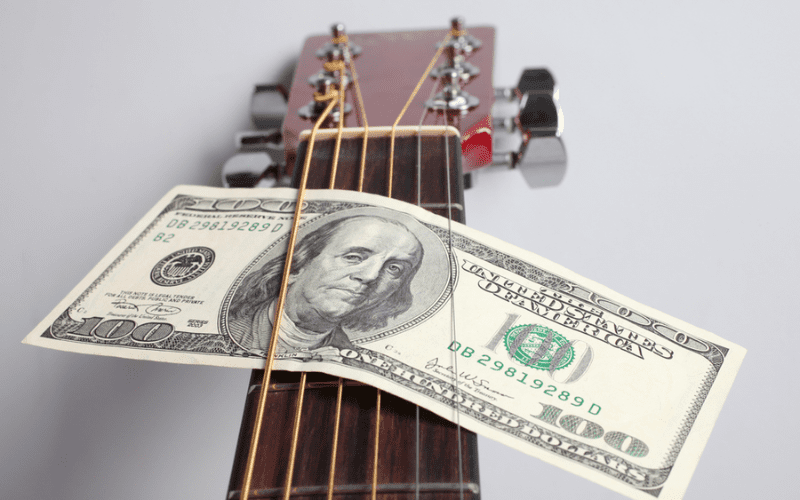MUSIC EDUCATION
Music Royalties and Key Things you should Know

Music industry, where creativity meets commerce, the concept of music royalties takes center stage. Music royalties are the financial lifeline that sustains artists, songwriters, and other stakeholders in the creation and dissemination of musical works.
Music royalties are payments made to the creators and rights holders of musical works for the use or exploitation of their compositions and recordings. These payments serve as a form of compensation for the intellectual property rights associated with music.
Types of Music Royalties
Mechanical Royalties: Paid to the songwriter and music publisher for the reproduction and distribution of recorded music. This includes sales of physical copies, digital downloads, and interactive streaming.
Performance Royalties: Generated when a musical work is publicly performed. This includes plays on radio, television, live performances, and streaming services. Performance royalties are typically split between the songwriter and the performing rights organization (PRO).
Sync Licensing Royalties: Paid for the use of music in synchronization with visual media, such as films, TV shows, commercials, and video games. Both the songwriter and the owner of the master recording receive compensation.
Print Music Royalties: About the reproduction and distribution of sheet music, print music royalties are paid to the songwriter and music publisher.
Distribution Mechanisms of Music Royalties
SESAC: A PRO that operates on a more selective membership basis, representing a diverse range of songwriters and publishers.
PRS for Music (Performing Right Society): A UK-based PRO that collects and distributes performance royalties to songwriters, composers, and publishers.
Mechanical Royalties Collection: Mechanical royalties are often collected and distributed through mechanical rights organizations, record labels, and digital distribution platforms
Digital Service Providers (DSPs) Streaming services, digital download platforms, and online music stores play a crucial role in the distribution of mechanical royalties. Platforms like Spotify, Apple Music, and Amazon Music negotiate licenses with rights holders and pay mechanical royalties based on usage.
Sync Licensing Platforms: Sync licensing royalties are often facilitated through specialized platforms that connect music creators with opportunities in film, TV, advertising, and other visual media. These platforms handle licensing agreements and royalty payments.
Challenges in Music Royalties
Fair Compensation in the Streaming Era The shift from physical sales to streaming has raised concerns about the adequacy of compensation for artists and songwriters. The per-stream payment model, while allowing for widespread access, can result in relatively low payouts per play.
Complexity of Royalty Calculations: The intricacies of royalty calculations, especially in the digital landscape, can be complex. Determining fair compensation for the various rights holders involves navigating through different licensing agreements, territories, and payment structures.
Transparency Issues: Lack of transparency in the distribution of royalties has been a persistent challenge. Many artists and songwriters find it difficult to track and understand how their royalties are calculated and distributed, particularly on streaming platforms.
Global Royalty Collection and Distribution: The international nature of the music industry introduces challenges in global royalty collection and distribution. Different PROs, laws, and licensing practices across countries contribute to a fragmented system that can hinder efficient compensation.
Unclaimed Royalties: A significant portion of royalties remains unclaimed or undistributed due to various reasons, including outdated data, incomplete metadata, and difficulties in identifying and locating rights holders.
Opportunities and Innovations in Music Royalties
Blockchain Technology: Blockchain has the potential to address transparency issues in royalty distribution. Smart contracts on a blockchain could automate royalty payments, ensuring a more transparent and efficient system.
Decentralized Music Platforms: Decentralized platforms powered by blockchain technology aim to empower artists by providing direct and transparent connections between creators and their fans. These platforms often incorporate cryptocurrencies to facilitate direct payments
Direct Artist-Brand Collaborations: Artists have the opportunity to collaborate directly with brands and companies, creating bespoke music for advertising and marketing campaigns. This direct collaboration can lead to additional revenue streams beyond traditional royalty channels.
The emergence of NFTs: Non-fungible tokens (NFTs) have entered the music industry, offering a new way to tokenize and trade digital assets, including exclusive music releases, concert experiences, and ownership of unique compositions. NFTs can provide a direct-to-fan revenue stream.
The Evolving Landscape of Music Royalties
Streaming Platforms and Subscription Models: Streaming platforms continue to dominate the music consumption landscape. The subscription model, where users pay a monthly fee for unlimited access to music, has become a primary revenue driver for the industry.
User-Generated Content Platforms: Platforms like YouTube, TikTok, and Instagram have become influential in music discovery and promotion. However, the complex nature of royalty payments on user-generated content platforms remains a challenge.
Podcasting and Audio Content: The rise of podcasts and audio content platforms presents new opportunities for music licensing and royalty generation. Musicians can explore licensing their music for use in podcasts, audiobooks, and other non-traditional audio formats.
Live Streaming and Virtual Concerts: The COVID-19 pandemic accelerated the adoption of live streaming and virtual concerts. While offering a substitute for in-person performances, these platforms also raise questions about equitable compensation for virtual events.
Global Collaboration and Cultural Fusion: The digital era enables global collaboration among artists from different cultural backgrounds. This cultural fusion not only enriches musical diversity but also presents opportunities for cross-border royalty generation and distribution.
Music royalties form the heartbeat of the music industry, ensuring that the creators and rights holders are compensated for their artistic contributions. As the industry continues to evolve, driven by technological advancements, changes in consumer behavior, and new business models, the landscape of music royalties undergoes a transformative symphony.
While challenges persist, opportunities for innovation and disruption abound. From blockchain solutions to NFTs, decentralized platforms, and the continued growth of streaming, the music industry is navigating uncharted territories. The future of music royalties holds the promise of a more transparent, equitable, and artist-centric ecosystem where the melody of compensation harmonizes with the ever-changing rhythms of the digital age.
Source : Dklassgh.Com




















